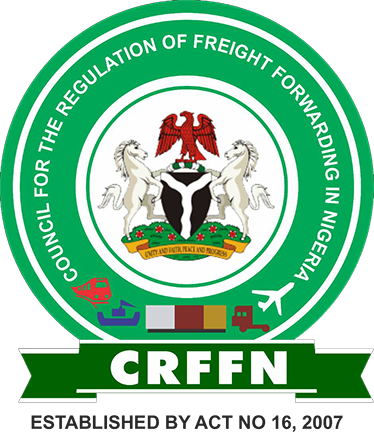
Freight forwarders operating in the nation’s maritime industry have knocked the Council for the Regulation of Freight Forwarding in Nigeria (CRFFN) over non-issuance of identity cards to enable them to access the ports.
This is even as they lamented that lack of unified Identity cards has led to intimidation and undue arrest of legitimate freight forwarders at the ports by officers of the Nigeria Police Force (NPF).
Speaking last week during a visit by the Ministry of Transportation and the CRFFN to freight forwarders, the founder of the National Association of Government Approved Freight Forwarders (NAGAFF), Dr Boniface Aniebonam noted that with the prevalence of multiplicity of port access and identity cards, freight forwarders with legitimate business are constantly harassed and arrested indiscriminately because they do not possess some of these access cards.
Aniebonam decried that the CRFFN has refused to issue identity cards to all registered freight forwarders, despite payment of annual subscription and registration. According to him, an identity card issued by the Council should be able to grant them access to any port in Nigeria.
Speaking further, the NAGAFF founder stated that nobody can be easily held responsible in fraud matters at the port except the power of the court or the Corporate Affairs Commission (CAC) which can unveil the owners of the license.
He however called on the Federal Government through the Ministry of Transportation to adequately look into total enforcement of the CRFFN Act and ensure that the Council fully regulates all registered freight forwarders by providing them with identity cards.
“The CRFFN is to serve as an intervention to provide us space in the committee of professionals in the nation. There is nothing the CRFFN has not done for freight forwarders to enable them to do their business. We paid CRFFN annual subscription and all that, but we cannot gain access to some ports unless you have the port access cards to these ports.
“We cannot even be allowed to do our business. The greatest problem we are facing in the Nigerian ports is the indiscriminate arrest of freight forwarders by the Nigerian Police. All these boys that go to do business in the port and are legitimate are indiscriminately arrested, because they don’t have a port access card because CRFFN has refused to give them one.
“I continue to call the Chief Security Officer or the Police Officer in charge to release them. The problem is usually the port access card. NPA is not providing it and freight forwarders are ready to pay for it. As I speak, CRFFN has not given any freight forwarder identity card despite the fact that they have paid for it.
“The fraud in the port today whether you like it or not, is because there is nobody to be held responsible except the power of the court or the Corporate Affairs to unveil to know who is behind the license. That is a long process. We cannot see this in other professional bodies’ ‘ Aniebonam lamented.
Speaking earlier with Shipping Position Daily, the Financial Secretary of the Association of Registered Freight Forwarders, Nigeria (AREFFN) Rev. Alex Nwokedi noted that the use of Port Access Card is more operational at the Port and Terminal Multiservices Ltd (PTML) and will soon extend to other terminals at the Lagos ports.
He said the Port access cards are issued based on registered customs licenses and they sometimes pay up to N5,000 to N8,000 per staff yearly. According to him, the Access Cards have been able to checkmate corrupt practices at the entrances to the port.
“They continue to change the price of the access card year in and out. They place some amount for each operation. Sometimes they collect N5,000 or N8,000 as the case may be, after application. You will need to apply for your license. The duration of the license is one year” Nwokedi said.
Other freight forwarders who spoke with our correspondent lamented the high cost of the access cards, adding that they pay as much as N10,000 each to get the Card at PTML, which has placed a burden on clearing as some could not afford to pay for their entire staff thereby giving them limited access to the port.















